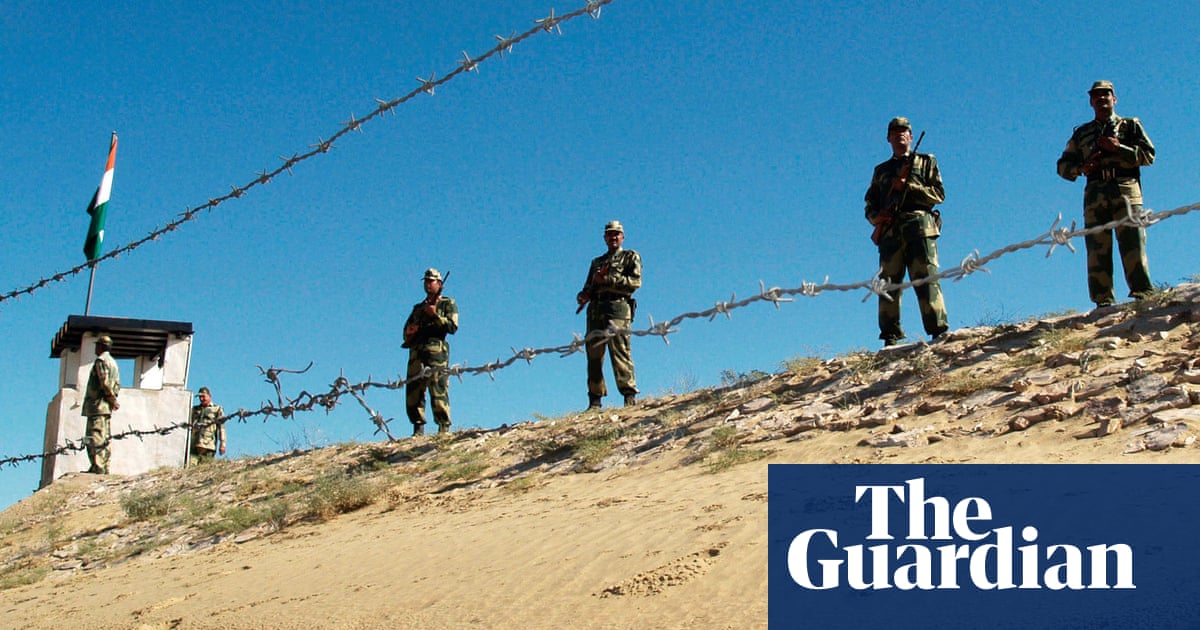The article highlights a serious incident involving Indian border troops shooting a Pakistani individual who allegedly crossed the international frontier. This event occurs in a tense geopolitical context, especially following a recent ceasefire agreement between India and Pakistan after a violent conflict that resulted in significant casualties. The timing of such news can play a crucial role in shaping public perception and political narratives in both countries.
Potential Intent Behind the Publication
The reporting of this incident may serve to reinforce nationalistic sentiments within India, portraying border security as a priority and justifying military actions against perceived threats. By emphasizing the shooting and labeling the deceased as an "intruder," the narrative can evoke a sense of urgency around national security issues, potentially rallying public support for the government's hardline stance.
Public Perception and Messaging
This news is likely aimed at fostering a perception of vigilance and readiness among the Indian populace. The description of the deceased as a "suspicious person" and the immediate action taken by the Border Security Force can lead to a binary view of the situation—where individuals crossing the border are seen as threats rather than victims of a complex geopolitical situation.
Information Omission and Underlying Issues
By focusing solely on the shooting, the report may obscure deeper issues, such as the ongoing conflict in Kashmir, historical grievances, and the implications of militarization in border regions. It neglects to address the broader context of violence and the accusations exchanged between India and Pakistan regarding militant activities.
Manipulative Aspects of the Report
The language used in the article could be construed as manipulative, particularly in how it frames the actions of the Indian troops. Terms like "neutralised" may desensitize readers to the gravity of the situation, reducing the human aspect of the event to a mere military success.
Truthfulness and Reliability
While the core facts of the incident may be accurate, the framing and contextualization raise questions about the overall reliability of the report. The selective emphasis on certain aspects can lead to a skewed understanding of the situation.
Comparative Analysis with Other Reports
When placed alongside other coverage of India-Pakistan relations, it is evident that this incident fits into a pattern of news narratives that often highlight aggressive military responses. Such reports can contribute to a cycle of escalation in rhetoric and action between the two nations.
Impact on Society and Politics
This news could potentially exacerbate tensions between India and Pakistan, affecting diplomatic relations and public sentiment. It may also influence political discourse within India, particularly regarding defense policies and border security measures, fostering a climate of fear and vigilance.
Supportive Communities
Nationalistic groups in India are likely to support this narrative, viewing it as a validation of their beliefs about security and military strength. Conversely, communities advocating for peace and dialogue may find this reporting concerning, as it could hinder efforts toward reconciliation.
Market Implications
In terms of market reactions, heightened tensions between India and Pakistan can lead to fluctuations in investor confidence, particularly in sectors tied to defense and security. Stocks related to defense contractors may see increased interest, while those in tourism or trade could be negatively impacted.
Geopolitical Significance
This incident is significant in the context of India-Pakistan relations and reflects broader geopolitical dynamics in South Asia. It underscores the fragility of the ceasefire and the continuous cycle of violence that characterizes the region.
AI Influence in Reporting
There is a possibility that AI tools were used in the drafting or editing of this article, particularly in determining the headlines and structuring the narrative. AI could influence the choice of language, emphasizing certain elements while downplaying others to fit a specific agenda.
Conclusion
The article's portrayal of the shooting incident raises important questions about its reliability and the implications of its framing. The selective focus on certain details suggests an effort to manipulate public perception in favor of a specific narrative, particularly around national security and border control.
